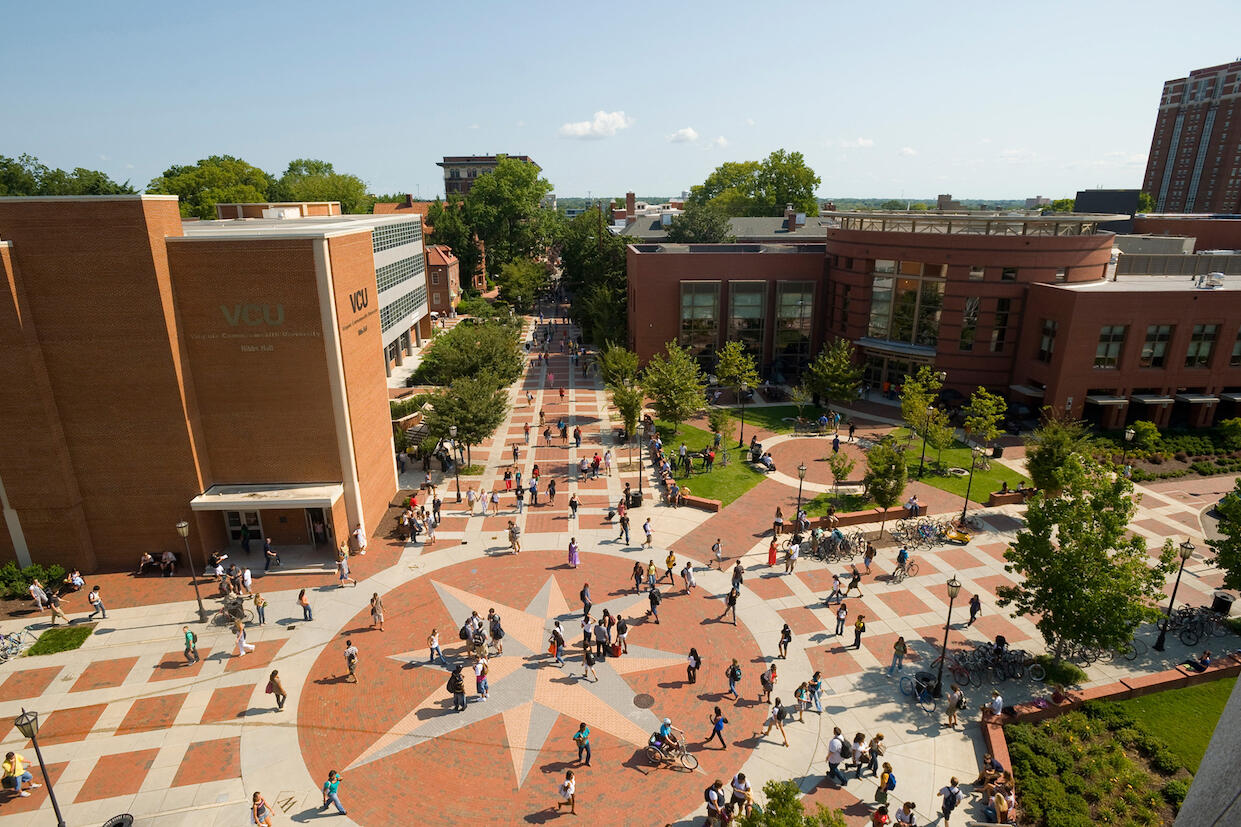
June 16, 2020
The safety and well-being of our campus community
Share this story
To the VCU and VCU Health Community,
In VCU’s journey to preserve and restore health and well-being for all and uphold our inherent values of diversity, inclusion and equity, our mission calls on us to address very real issues such as law enforcement’s interactions with ethnic, racial, gender and sexual minority communities, in particular those intersecting with African American communities.
To this end, VCU will transition its public safety model from policing our community to equitably and more holistically fostering the safety and well-being of every individual on our campuses.
Through a series of targeted reforms and community involvement, VCU will forge a new transdisciplinary model for campus safety and wellness with the goal of addressing and promoting health equity. As a start, our new model will enhance or include the following:
- Civilian oversight and advisory function. VCU will implement a new civilian advisory committee. This committee will meet regularly to assist in the development of our new model, review VCU’s wellness and safety activities and results, and inform operational and strategic decisions. In order to determine how best to seat this committee, we would like to know your thoughts regarding its composition. Please provide your suggestions by using this form or emailing us at safetymodel@vcu.edu.
Overall oversight for campus safety is civilian, under the direction of the vice president for administration. Additionally, as with all VCU employees, VCU Police remain under the purview of VCU Human Resources who review, investigate and make recommendations for disciplinary actions. - Workforce realignment. VCU will focus on increasing safety, mental health, outreach and wellness staff while realigning our police workforce to place unsworn/unarmed safety or mental health professionals in roles that do not require sworn officers. All of these specialists will work collaboratively as a team and exercise a critical role in the safety and well-being of our community.
- Fair and impartial policing. VCU knows that every single interaction matters. We will continue to implement policies, conduct training, solicit feedback and develop initiatives that promote fair and equitable treatment of all community members. VCU manages its own Virginia state-certified law enforcement training academy, policies and protocols as well as establishes its own operational priorities, separate from other local law enforcement agencies.
VCU will continue to provide and seek additional training for crisis intervention, de-escalation and fair and impartial policing practices such as implicit-bias-awareness training. VCU Police will support and participate in the One Mind Campaign, to improve response to those affected by mental illness. Officers are required to intervene and report excessive use of force as well as comply with restrictive use of force policies. - Transparent metrics. VCU Police track important key performance indicators and currently make this data available to the community through safety reports and crime logs. VCU will now enhance these efforts by developing a new public safety dashboard that includes officer complaints, department use of force and resolution, random body worn video camera reviews to include findings, and excessive use of force complaints to include resolution.
- Community feedback. We need to hear your thoughts as we build this new model together. In addition to existing opportunities for the community to provide feedback, such as the VCU Police website, the LiveSafe mobile app, surveys and numerous community outreach events, VCU will seek new ways to listen and provide new platforms for community members to share their experiences and advice with both VCU Police and our civilian advisory committee. As we get started, we welcome your input. Please share your ideas and advice online at go.vcu.edu/safetymodel or email safetymodel@vcu.edu.
The health and safety of our community is a critical priority. We must cultivate an environment in which we all can thrive as students, faculty, staff, researchers, patients and health care providers. We will update you on our progress this summer and regularly as we move forward, and we will continue to seek your input as we work on this new model of wellness and safety for everyone on our campuses.
Sincerely,
Michael Rao, President, VCU and VCU Health System
Peter Buckley, Interim Senior Vice President for Health Sciences and Interim CEO, VCU Health System
Matthew Conrad, Executive Director of Government and Board Relations
Jay Davenport, Vice President for Development and Alumni Relations
Karol Kain Gray, Senior Vice President and Chief Financial Officer
Karah Gunther, Executive Director for Government Relations and Health Policy
Gail Hackett, Provost and Senior Vice President for Academic Affairs
Karen Helderman, Executive Director for Audit and Compliance Services
Charles Klink, Vice Provost for Student Affairs
Pamela Lepley, Vice President for University Relations
Ed McLaughlin, Vice President and Director of Athletics
Aashir Nasim, Vice President for Institutional Equity, Effectiveness and Success
P. Srirama Rao, Vice President for Research and Innovation
Meredith Weiss, Vice President for Administration
Subscribe to VCU News
Subscribe to VCU News at newsletter.vcu.edu and receive a selection of stories, videos, photos, news clips and event listings in your inbox.







